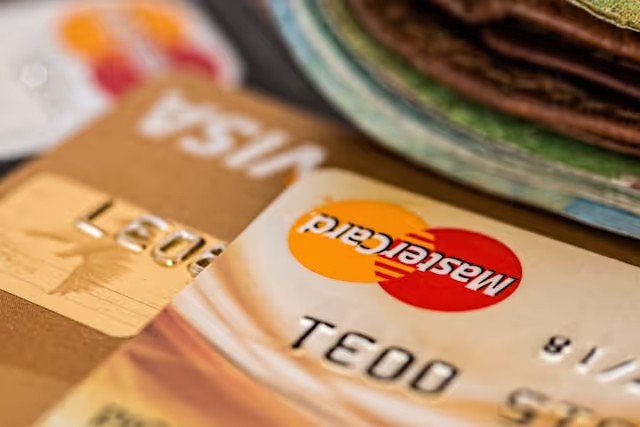
Blog
How To Live within Your Means and Still Enjoy Life
Building financial freedom
Most people have probably been on the receiving end of the saying “You just need to learn to live within your means” at some point. Be that from parents, friends or even a financial adviser! In a consumer-driven culture, it is hard to resist the temptations of new shiny things or exciting experiences. Social media has only worsened this reality, as you scroll past another friend's trip to Europe or post of their new car.
But if you want to avoid the feeling of dread when you check your bank balance near the end of your pay cycle and see you’ve blown your budget again, then learning to heed this advice is worth it. Living within your means is simply making sure you spend less than you earn each month, which can be harder-said-than-done. Trust us, even high-income earners fall into the lifestyle inflation trap.
Breaking Bad Financial Habits
Firstly, don’t be ashamed. It can be embarrassing to admit that you’ve been failing in your financial goals, but the first step in finding financial freedom is acknowledging the issue and not beating yourself up about it. Think of it as self-awareness. If you’re someone who is easily influenced by the habits of others, living within your means isn’t always easy, and there are a few reasons why.
Credit Cards
Whilst credit cards do have their merits, mainly the perks they provide, such as Airpoints, they can also be a bad idea for some people. If you struggle to control your spending, then having direct access to credit with a simple swipe is probably not a good idea. Switching back to a simple debit card and spending the actual cash in your bank account is a much better way of setting firm limits.
Online Shopping
We can thank the internet for many things, such as connecting with friends and family overseas through social media, remote work options and of course, Uber Eats. Who doesn’t love pizza delivered to their door with the click of a button?! Yet the downside is that you can buy virtually anything you want on the internet, and thanks to sneaky algorithms that send us targeted ads, resisting the temptation to spend can be hard.
Social Media
Social media has a lot to answer for when it comes to the rampant consumer culture of today. It’s easy to feel FOMO when you see the highlight reel of other people’s lives. Following fashion, food, travel, and luxury lifestyle influencers can leave people with unrealistic expectations of what they should have in life. If you often compare yourself to others online, maybe it’s time for a social media detox while you sort your money mindset out.
A Game-Plan to Live Within your Means
Know Your Income and Expenses Intimately
If you want to have financial control, the first thing you need to understand is your monthly and yearly income to a tee and how it stacks up to your expenses. You might know what you earn per year roughly, but crunching the numbers in a spreadsheet can allow you to map your spending. If you’re not an Excel whizz, or just don’t love numbers, there are many online tools that can help. Savology and YNAB both have fantastic reviews for financial planning, budgeting and advice. Of course, if you’re serious about finances you can enlist the help of a personal financial adviser like us at Become Wealth.
Re-Negotiate Any Recurring Expenses
Have you been with the same phone provider for a few years? Do you have a mortgage that is at a higher rate than other banks? It pays to look at your fixed expenses and see if there’s any way to haggle them down. Simply shopping at Pak N Save instead of Countdown could save you $15 a week according to a Canstar survey. It may not sound like much but things add up.
Cut Back Unnecessary Expenses
Chances are that if you go through your bank statement with a fine tooth comb you’ll find there are some things you can live without. Do you buy a takeaway coffee a day? How often do you purchase new clothes? Are there a few too many dinners out? Being conscious of what you have spent can allow you to plan better for the future. You can still enjoy your life but be smarter about it. Have friends over for dinner at home more, make coffee at home. If you have subscriptions to three streaming platforms the likes of Neon, Netflix and Disney+, maybe commit to just one at a time?
Work on Your Money Mindset
Our relationship with money determines how we spend. It can be hard to rewire how you think about money, but it is worth it. Are you someone who sees money as something to spend, not something that enables you to have a better life? Podcasts including Rewire Your Money Mindset can help you to change the way you think and behave financially. Overcoming the temptation to buy things you want, rather than need and learning to not compare yourself to other people’s material possessions is a journey, but it can be achieved.
Again, don’t be hard on yourself, we live in a society that promotes rampant spending to keep the economy churning, and learning to resist the urge to spend takes time. Working on financial literacy is a great way to rewire your brain. Books such as The Barefoot Investor provide a comprehensive view of investing and growing long-term wealth. If you’re ready to take the real plunge, engaging a wealth manager could be a good idea.
Expand Your Income
This can be harder said than done, but expanding your income is key to building financial freedom. Can you negotiate a raise at work? Is there a side-hustle you could pick up? From dog-walking to ride-share driving, there are many options to make some extra cash. Passive income (money you make that doesn’t rely on your time) is the ultimate goal for financial freedom, so setting a goal such as buying an investment property could be a great idea.
Shop Smarter
Being a bargain hunter can get you a long way when it comes to saving money. Cash back apps like ibotta or coupon browser extensions like honey can make a big difference. Never make a big purchase without sleeping on it, and if you can wait, bide your time until big sales like Boxing Day or Black Friday hit.
Pay Yourself First
The saying “pay yourself first” could be clarified to mean “first, pay your future self” — set aside money for big goals before paying bills and making other purchases. Naturally, it’s still important to keep up with debt obligations.
Automatic transfers can make it easier to pay yourself first.
Treat Yourself So Not to Deprive Yourself
It’s important to still treat yourself from time to time. Rather than spending randomly, set dedicated times to treat yourself or save up for a specific thing that you want: it’ll feel much better than just spending without thought.
The Bottom Line: It’s a Mindset
Taking control of your finances is critical, but making savvy spending decisions and consciously working on your money mindset is just as important. Living within your means doesn’t mean depriving yourself of fun, but rather being more responsible with your money so you can construct a great life for your ‘future self’. Your money is yours to spend, it’s just about spending in a deliberate way that aligns with the aims of your life.
You may also like:

What Is The Reserve Bank of New Zealand?

Top Investment Tips from Warren Buffett


